rewrite this content and keep HTML tags
THE HISTORICAL CONTEXT
Traditionally, Indian cinema has portrayed trans characters in a negative light, often relegating them to comic relief or villainous roles. This portrayal reinforced societal prejudices and failed to acknowledge the complexity and humanity of trans individuals. Movies like ‘Sadak’ and ‘Tamanna’ were among the few exceptions, presenting trans characters with some depth, but such portrayals were sporadic and not the norm.
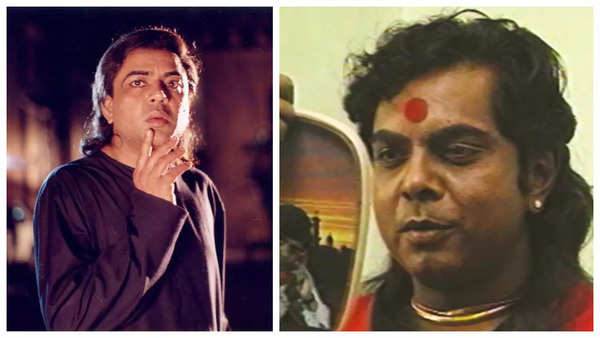
The Changing Landscape
The narrative began to change with the advent of a more progressive and inclusive mindset within the industry. Filmmakers started recognizing the importance of authentic representation and the need to tell stories that reflect the true experiences of trans women.
PATH-BREAKING FILMS AND PERFORMANCES:
‘Super Deluxe’
This Tamil film featured Vijay Sethupathi as Shilpa, a trans woman. The portrayal was groundbreaking, presenting Shilpa with dignity and depth, a far cry from the stereotypical representations of the past.
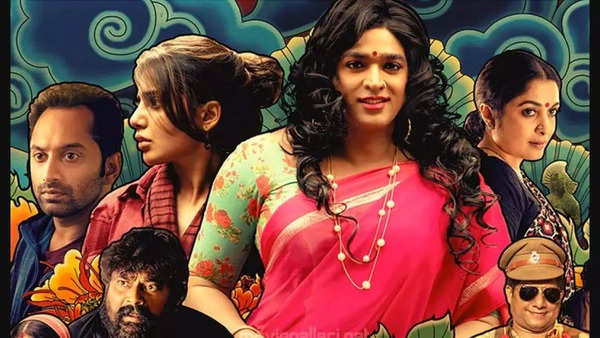
‘Njan Marykutty’
This Malayalam film starred Jayasurya as Marykutty, a trans woman striving for acceptance and respect. The film received critical acclaim for its sensitive portrayal and brought attention to the struggles and triumphs of trans women.
‘Taali’
The Sushmita Sen starrer web series spotlighting transgender activist Gauri Sawant sheds light on her courageous journey of transformation, motherhood, and her pivotal role in advocating for the inclusion of the third gender in all official documents across India.
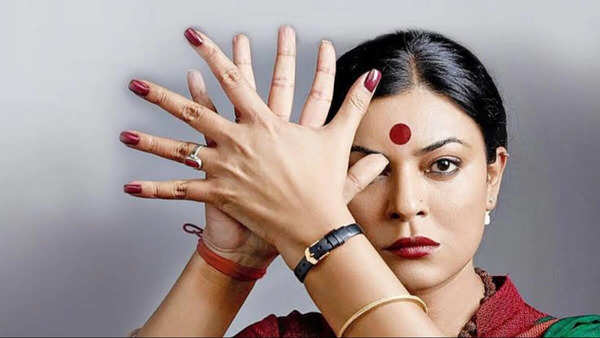
TRANS ACTRESSES ON THE RISE:
Ivanka Das
Ivanka Das is a prominent trans actress and dancer who gained fame through her performances in Bollywood and television. She has been a vocal advocate for trans rights and has used her platform to challenge stereotypes and promote acceptance. Ivanka’s role in the web series ‘Bombay Begums’ brought much-needed visibility to trans characters in mainstream media.
Spilling some beans on what she feels about the increasing visibility of trans women in Indian cinema today, Ivanka told ETimes, “It’s good that people are starting to think about the transsexual and transgender communities more, but there’s still a need for better understanding of realistic portrayals. Some still view them with stereotypes, showing them in manly appearances. However, a few directors are making realistic efforts, which I appreciate. Yet, some portrayals are still not quite right.”
Elaborating further, she added, “Trans actors should not be confined by gender. Before female actors like Deepika, where does she fit? First, we should separate actors and actresses; we are actresses. Transsexuals, who have had surgery, are different from non-operated transgenders. They should be considered male or female based on their surgery. If a transsexual plays a lead role, they should be seen as their identified gender. If we can’t play female roles, what are we? Props? This hypocrisy needs to change.”
When asked, how important is it for mainstream Bollywood to embrace and cast trans actors in authentic roles, the actress shared, “They need to recognize people with potential and avoid gender discrimination or stereotyping. Actors should be given work regardless of gender. Transformed individuals should be given roles that match their identity, not just trans-specific roles. Trans actors deserve opportunities in lead roles just like anyone else. The industry’s discrimination needs to end. They should value talent and provide equal opportunities.”
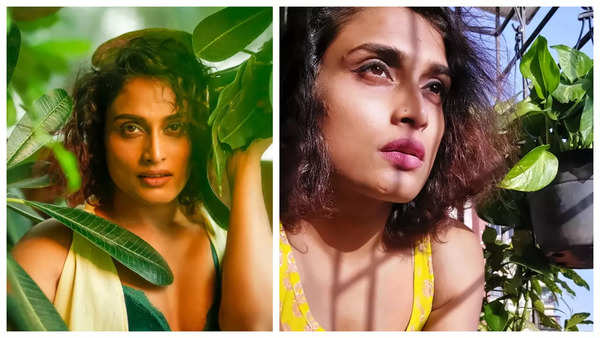
“The industry should judge actors based on their abilities, not superficial factors. Good actors deserve recognition. In India, transgender actors are often given roles just because they have some followers or fit a stereotype. This needs to stop. Roles should be given based on potential, regardless of gender or sexuality. Misconceptions about transgender and transsexual people lead to misinformation and poor casting choices. Only those who truly understand and have experienced the transition should be considered for such roles to ensure accuracy and authenticity,’ she added.
Urging the filmmakers to give opportunities for real talent, Ivanka concluded by saying, “Take real talent, who has a background in theater, dance, or has genuinely accomplished something in the acting field and all those areas. Don’t even look at gender in that; you can’t talk about gender in that.”
Trinetra Haldar
Trinetra Haldar Gummaraju is a trailblazing trans woman who has made significant strides in Indian cinema. A doctor by profession, Trinetra turned to acting to give voice to authentic trans narratives. She is known for her work in the web series ‘Made in Heaven,’ where her portrayal of a trans character received widespread acclaim for its depth and sensitivity.
The actress earlier told ETimes, “Over the years, filmmakers have been actively trying to change the narrative around the queer community with sensible films like ‘Kapoor & Sons’, ‘Badhaai Ho’, ‘Aligarh’, or ‘Geeli Puchi’.”
At the same time, Trinetra believes that most queer representation has been done by actors from outside the community, resulting in distorted and caricature-like versions at times. “We’re still at a time where cisgender women and men are playing trans characters. They are also setting really unrealistic beauty standards. For example, Vaani Kapoor may have done the best that she could with her role in Chandigarh Kare Aashiqui, but when I and a lot of other trans women watched the movie, it felt like we’re never going to look like that. We shouldn’t be made to feel the pressure to look a specific way to be respected and loved by society,” she added.
Anjali Ameer
The first trans woman to play a lead role in Indian cinema, Anjali starred in the Tamil film ‘Peranbu’ (2019). Her presence marked a significant milestone, showcasing that trans women can lead films and deliver compelling performances. The actress also made history as the first transgender contestant on Bigg Boss Malayalam.
Mairembam Ronaldo Singh
Mairembam Ronaldo Singh, also known as Henthoi Mairembam, won acclaim for her debut portrayal in the Indian web series ‘Paatal Lok’ as Cheeni, a transgender girl abandoned by her family. Her performance shines a spotlight on the challenges and societal treatment of the LGBTQ community.

Sushant Divgikar
Sushant Divgikar, also known as Rani Ko-He-Nur, is a prominent LGBTQ activist and drag queen performer based in India. In 2018, he made headlines by participating in the national singing competition, Sa Re Ga Ma Pa, coinciding with India’s landmark Supreme Court decision to repeal Section 377, decriminalizing homosexuality.
Currently, Divgikar dedicates himself to auditioning, mentoring, and training emerging drag queens, aiming to democratize and popularize drag as an art form in the country. His international debut came in 2019 with Rainbow Riots-House of Wallenberg in Sweden, accompanied by the release of the empowering single ‘I’m Coming Out’ during Stockholm Pride. Notably, in 2014, Divgikar achieved acclaim by winning the title of Mr Gay India.
Shree Ghatak
Shree Ghatak made her debut in the 2019 film ‘Season’s Greetings,’ becoming the first transgender person from Kolkata to appear in a Bollywood production. She also achieved historical significance by becoming Kolkata’s first transgender woman to legally marry her boyfriend, Sanjay.
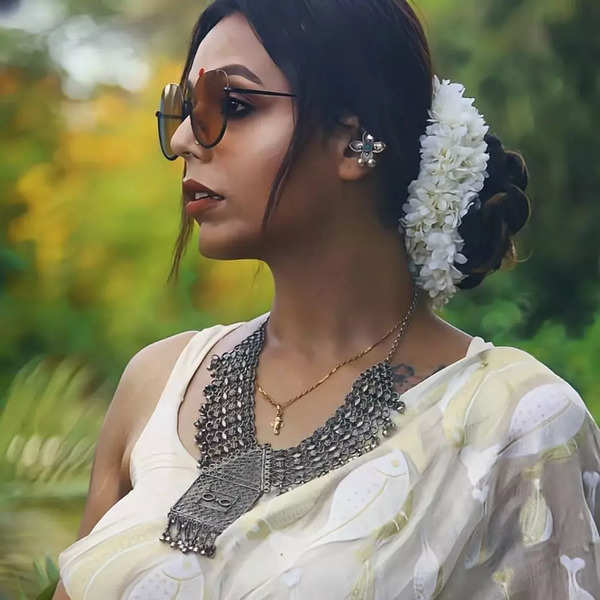
On the occasion of Mother’s Day last year, Shree spoke to ETimes about straight actors playing the queer characters onscreen. The actress said, “The lack of representation of trans artists on the screen has always been a major debate. We have often heard this question what kind of characters would transgender artists be allowed to play if all their roles will be taken up by cisgender actors? Filmmakers might have started representing the LGBTQIA+ community in films in a more sensitive light but what continues to bother me is why queer actors won’t be cast to play queer characters. I can understand it is highly important that queer stories are mainstreamed and there’s also the commercial aspect and film business. Still, someone has to step forward and take the risk. Otherwise, many raw talents will be wasted.”
Elaborating further, she added, “I think people with real-life experiences will be able to portray the role better. The misrepresentation and under-representation of queer and trans people have always been a part of Indian cinema. However, things are changing now, and giving more opportunities to trans actors will be for the greater good.”
Behind the Scenes: Trans Women Filmmakers and Writers
Gazal Dhaliwal
Gazal Dhaliwal, a celebrated screenwriter and actress, underwent a gender transition in her twenties. Known for her impactful scripts in Bollywood, including ‘Ek Ladki Ko Dekha Toh Aisa Laga’ and ‘Wazir,’ Gazal has not only carved a niche for herself in the industry but also become an inspirational figure. Her personal journey and professional accomplishments highlight her resilience and contribution to diverse storytelling in Indian cinema.
Spilling some beans about how the industry reacted to Gazal as a trans person, she shared that as a trans screenwriter, her early career involved confusion and curiosity about transgender identity, especially before social media’s rise. One memorable encounter with a film producer highlighted initial uncertainty in how to engage with them. Despite occasional curious glances, they feel accepted in the progressive film industry, experiencing no significant career setbacks due to their transgender identity.
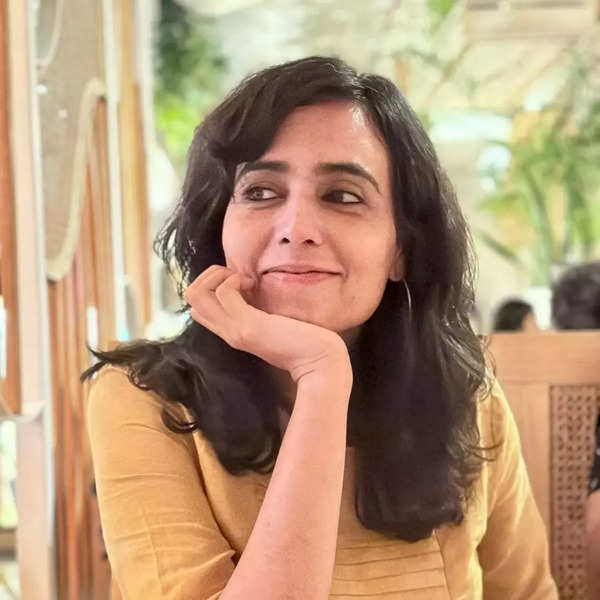
She added that in recent years, the film industry has advanced in depicting LGBTQ2+ themes. Films like ‘Fire’ and ‘My Brother Nikhil’ addressed lesbian and gay narratives two decades ago, albeit in niche cinema. Three years ago, ‘Ek Ladki Ko Dekha Toh Aisa Laga’ became one of the first mainstream Hindi films centered on a lesbian protagonist, marking a pivotal moment post-legalization of homosexuality in India. Mainstream films and series on OTT platforms now feature well-received queer themes, portraying characters beyond stereotypes. This evolution promises ongoing inclusivity and representation in cinema.
Living Smile Vidya
Living Smile Vidya, affectionately known as Smiley, is a multifaceted figure in the film industry and a staunch advocate for trans and Dalit rights. Beyond her roles as an actor, assistant director, and writer, she has appeared in several acclaimed short and documentary films. Her autobiography, “Naanu Avanalla…Avalu,” has been adapted into an award-winning Kannada film, further highlighting her impactful contributions to cinema and social justice.
Impact and acceptance
The increasing visibility of trans women in Indian cinema has had a profound impact on societal attitudes. Films and performances that portray trans women with dignity and depth help in breaking down prejudices and fostering a more inclusive society. This cultural shift is crucial for the broader acceptance and integration of trans individuals in all walks of life.
Challenges
Despite the progress, challenges remain. The industry still has a long way to go in terms of providing equal opportunities and combating deep-rooted biases. Advocacy for better representation, more inclusive casting practices, and continued support for trans artists is essential for sustaining this positive momentum.
Conclusion
Trans women are indeed redefining Indian cinema, transforming it into a more inclusive and diverse industry. Their contributions, both on-screen and behind the scenes, are not only enriching Indian cinema but also playing a pivotal role in shaping societal attitudes towards the LGBTQIA+ community. As the industry continues to evolve, the stories and voices of trans women will undoubtedly become an integral part of the cinematic narrative, reflecting the true spirit of diversity and inclusivity.

